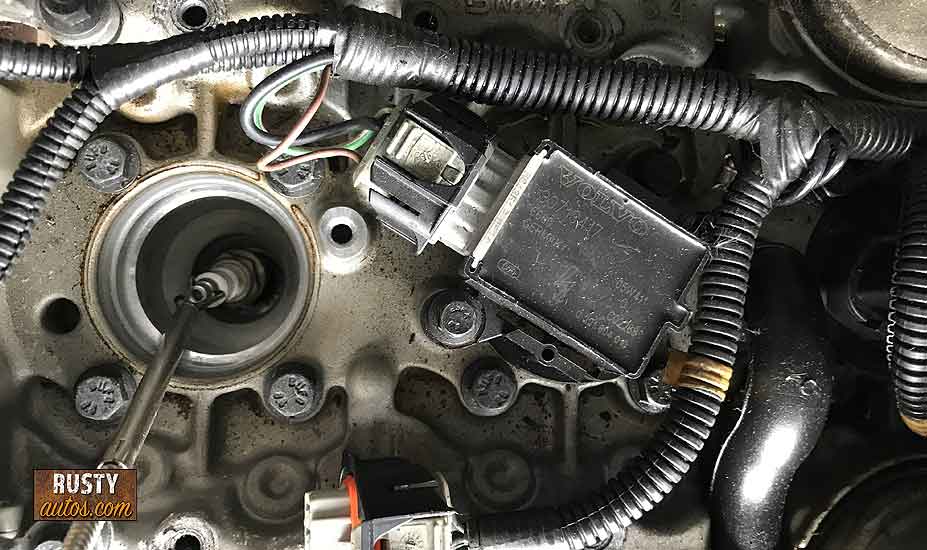We have the condition for infinitely many solutions when, comparing with given equations, we have, taking first two ratios , we have, taking last two ratios , we have, since, p = 6 satisfies both equation. B 1 & b 2 are the coefficients of y.
Which Of The Following Equations Have Infinitely Many Solutions. B 1 & b 2 are the coefficients of y. 1 🔴 on a question which of the following equations have infinitely many solutions? Thus, p = 6 will make the given pair of linear equations have infinitely many solutions. Linear system of equations with infinitely many solutions.
 Find The Values Of K For Which The Following Pair Of Linear Equations Has Infinitely Many Solutions - Youtube From youtube.com
Find The Values Of K For Which The Following Pair Of Linear Equations Has Infinitely Many Solutions - Youtube From youtube.com
Related Post Find The Values Of K For Which The Following Pair Of Linear Equations Has Infinitely Many Solutions - Youtube :
Thus, p = 6 will make the given pair of linear equations have infinitely many solutions. We have the condition for infinitely many solutions when, comparing with given equations, we have, taking first two ratios , we have, taking last two ratios , we have, since, p = 6 satisfies both equation. Find the values of k for which the following system of equations have infinitely many solutions.i 2 x+3 y=7ii k +2 x +2 k +1 y =32 k 1a. All other values of k give a unique solution.
1 🔴 on a question which of the following equations have infinitely many solutions?
Find the value of k for which each of the following systems of equations have infinitely many solution: Find the value of k for which each of the following systems of equations have infinitely many solution: Looking at what values will produce a row of zeros in rows 2 or 3, we see that k = 1 results in the equation 0 = − 10, giving no solutions. 2x + 3y = 7 and. Hence, a = 5 and b = 1 are the values for which the given equations will have infinitely many solutions. If we plot the graph of this equation, the lines will coincide.
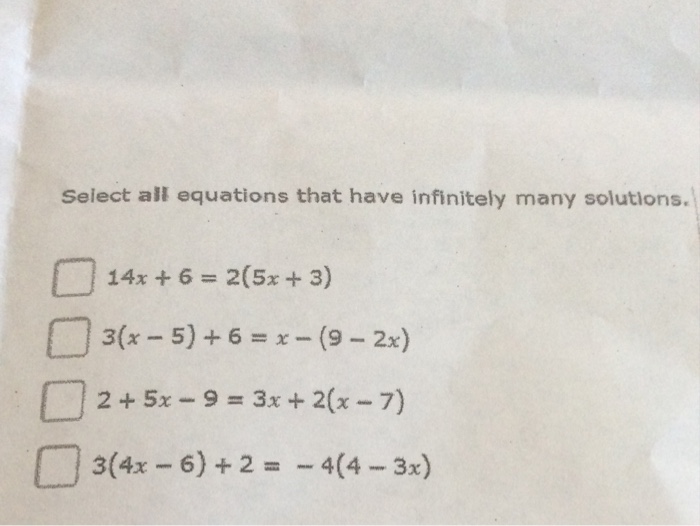
Hence, a = 5 and b = 1 are the values for which the given equations will have infinitely many solutions. Looking at what values will produce a row of zeros in rows 2 or 3, we see that k = 1 results in the equation 0 = − 10, giving no solutions. This type of equation is called a dependent pair of linear equations in two variables.
 Source: brainly.com
Source: brainly.com
2x + 3y = 2 (k+1)x + 9y = k + 1 asked apr 27 in linear equations by gargi01 ( 25.1k points) pair of linear equations in two variables Lhs=rhs for all values of x. If an equation after solving does not give the solution but give a true statement then the equation has infinitely many solution,.
 Source: youtube.com
Source: youtube.com
Question 3 for what values of a and b will the following pair of linear equations have infinitely many solutions? Thus, p = 6 will make the given pair of linear equations have infinitely many solutions. 2x + 3y = 7 and.
 Source: brainly.com
Source: brainly.com
Hence, the given system of equations will have infinitely many solutions, if k = 2. Given pair of equations are. Note that a 12 + b 12 ≠ 0, a 22 + b 22 ≠ 0.
 Source: brainly.com
Source: brainly.com
Looking at what values will produce a row of zeros in rows 2 or 3, we see that k = 1 results in the equation 0 = − 10, giving no solutions. Linear system of equations with infinitely many solutions. For the system of linear equations to have infinitely many solutions we must have.

Note that a 12 + b 12 ≠ 0, a 22 + b 22 ≠ 0. a_1/a_2 = b_1/b_2 = c_1/c_2. For the general pair of linear equations.
 Source: chegg.com
Source: chegg.com
We have the condition for infinitely many solutions when, comparing with given equations, we have, taking first two ratios , we have, taking last two ratios , we have, since, p = 6 satisfies both equation. Choose all answers that apply: 2x + 3y = 7 and.
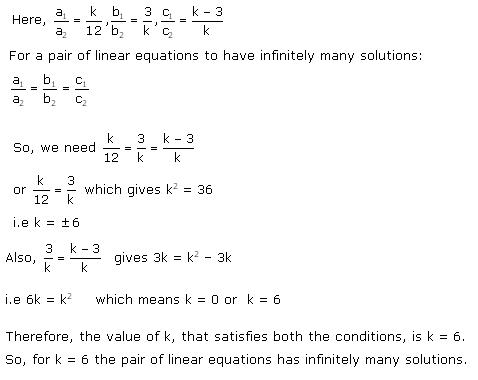
An equation with infinite solutions has a solution of x=x. Therefore, the value of k, that satisfies both the conditions, is k = 6. From the given equtions, put above values in equation (1) s shriddhi buddhpriya.
 Source: slideplayer.com
Source: slideplayer.com
⇒ 2 (2k + 1) = 3 (k+1). Both the equations are in the form of: If (a 1 /a 2) = (b 1 /b 2) = (c 1 /c 2 ), then there will be infinitely many solutions.
 Source: brainly.com
Source: brainly.com
An equation with infinite solutions has a solution of x=x. 2x + 3y = 2 (k+1)x + 9y = k + 1 asked apr 27 in linear equations by gargi01 ( 25.1k points) pair of linear equations in two variables This algebra video tutorial explains how to determine if a system of equations contain one solution, no solution, or infinitely many solutions.
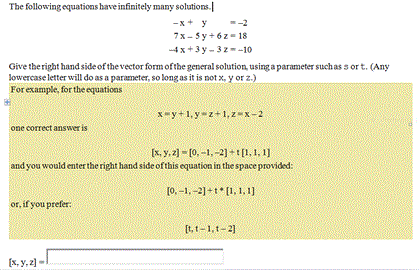 Source: chegg.com
Source: chegg.com
Thus, p = 6 will make the given pair of linear equations have infinitely many solutions. All other values of k give a unique solution. Substituting b = 1 in equation (2), we obtain.
 Source: teachoo.com
Source: teachoo.com
We add 10 to both sides. We add 10 to both sides. Substituting b = 1 in equation (2), we obtain.
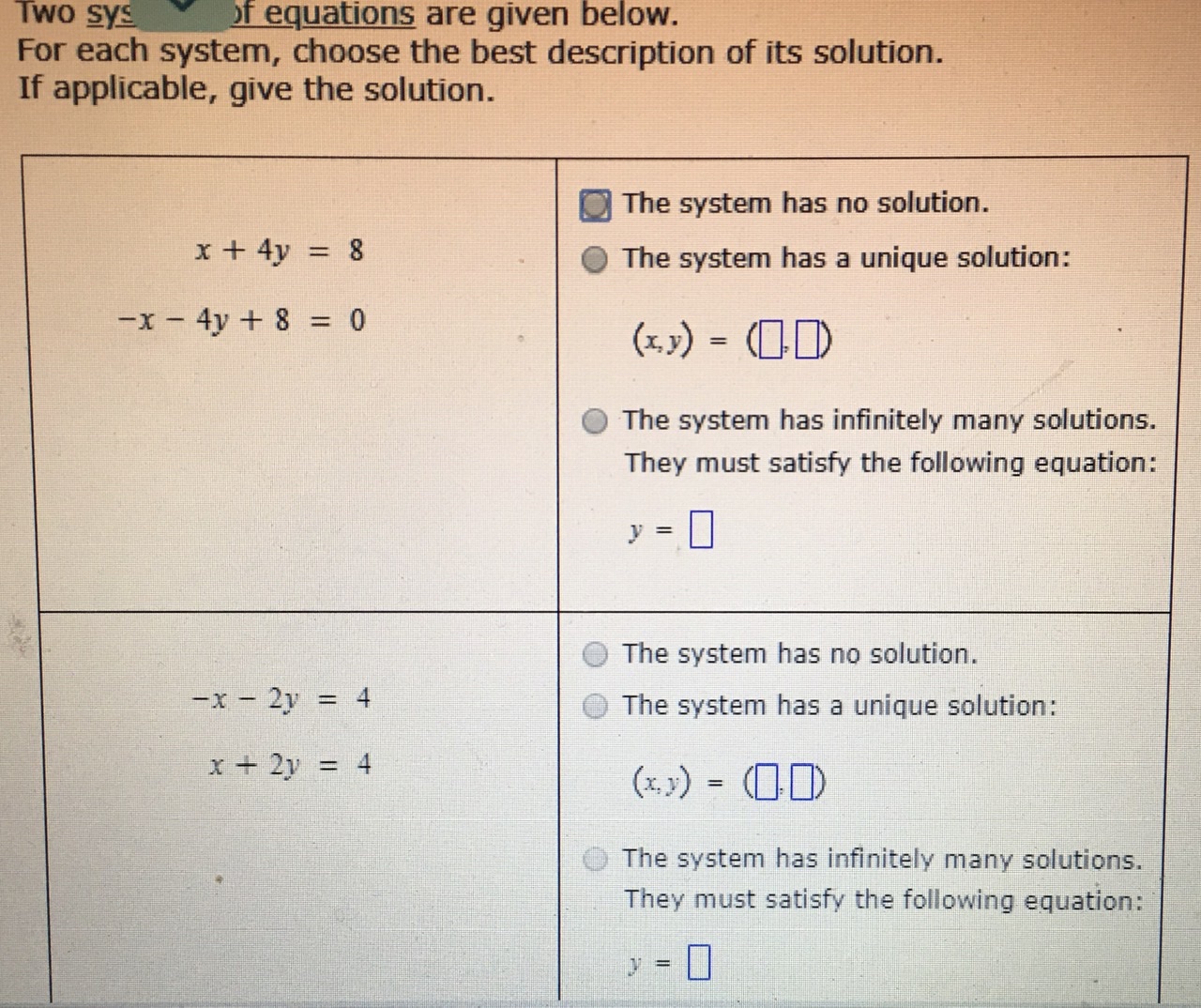 Source: bartleby.com
Source: bartleby.com
For the system of linear equations to have infinitely many solutions we must have. A 1 x + b 1 y = c 1 & a 2 x + b 2 y = c 2 where. On the other hand if k = − 2, then the last row results in 0 = 0, giving infinitely many solutions.
 Source: chegg.com
Source: chegg.com
Substituting b = 1 in equation (2), we obtain. 1 🔴 on a question which of the following equations have infinitely many solutions? Choose all answers that apply:
 Source: brainly.com
Source: brainly.com
1 🔴 on a question which of the following equations have infinitely many solutions? Both the equations are in the form of: X+2 y=1a b x+a+b y=a+b 2
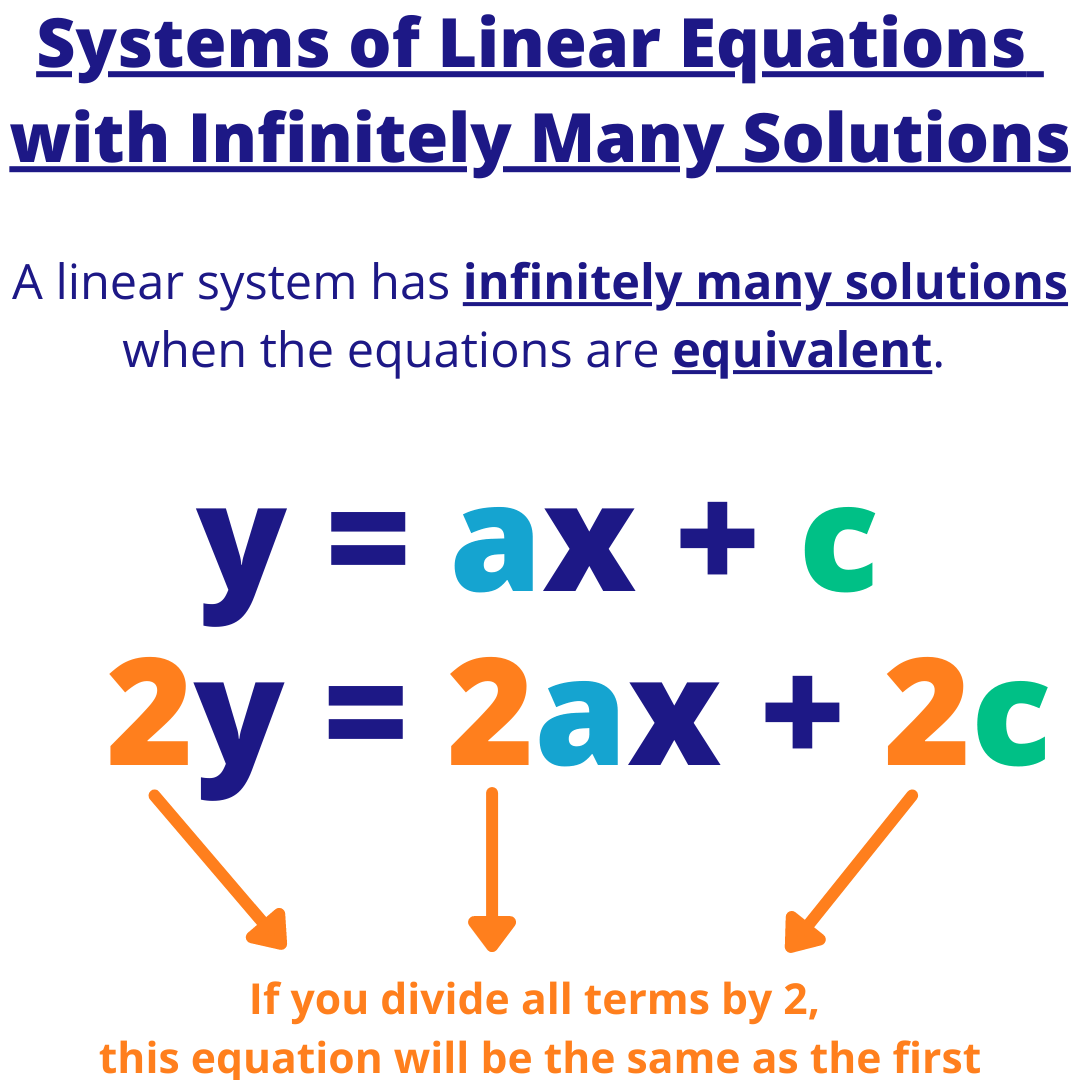 Source: expii.com
Source: expii.com
B 1 & b 2 are the coefficients of y. Kx + 3y = 2k + 1 2(k + 1)x + 9y = 7k + 1 asked apr 27 in linear equations by gargi01 ( 50.6k points) 1 🔴 on a question which of the following equations have infinitely many solutions?
 Source: brainly.com
Source: brainly.com
Lhs=rhs for all values of x. If an equation after solving does not give the solution but give a true statement then the equation has infinitely many solution,. Find the values of k for which the following system of equations have infinitely many solutions.i 2 x+3 y=7ii k +2 x +2 k +1 y =32 k 1a.
 Source: topperlearning.com
Source: topperlearning.com
1 🔴 on a question which of the following equations have infinitely many solutions? We have the condition for infinitely many solutions when, comparing with given equations, we have, taking first two ratios , we have, taking last two ratios , we have, since, p = 6 satisfies both equation. B 1 & b 2 are the coefficients of y.
 Source: teachoo.com
Source: teachoo.com
Find the values of k for which the following system of equations have infinitely many solutions.i 2 x+3 y=7ii k +2 x +2 k +1 y =32 k 1a. This algebra video tutorial explains how to determine if a system of equations contain one solution, no solution, or infinitely many solutions. Choose all answers that apply:
 Source: youtube.com
Source: youtube.com
⇒ 2 (2k + 1) = 3 (k+1). Find the value of k for which each of the following systems of equations have infinitely many solution: 2x + 3y = 7 and.
Also Read :




